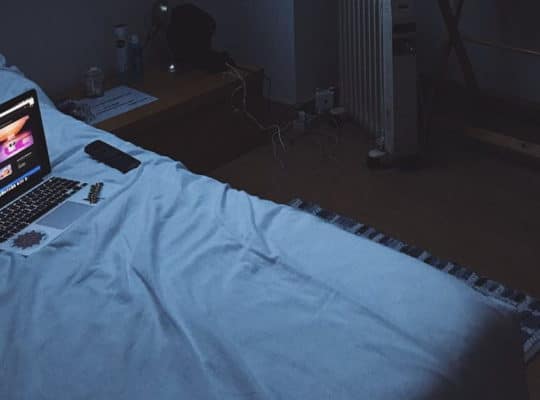September 11, 2023
East Coast Edition — from Starboard Cove, Maine — where the mesmerizing tide ebbs and flows twice each day. Good morning! Where were you 22 years ago this morning? Have we learned anything? What are you reading? I’m late to the party, but The Love Songs of W. E. B. Du Bois, Jeffers, 2021. Outstanding; worthy of being among your coffee table grab-and-browse — and then think/ reflect. Wow! Since we are coming to you from as far east as it’s possible to come — in the United States, that is — we are providing you with the treat of a summary of a piece that appeared in The Washington Post a few days ago. (Jeff Bezos’s paper, if you’ve forgotten.) We are continuing from the last three weeks, providing snippets and editorialized comments for just this one last time. (Next week it will be back to the same old Central Time Zone.) Disagree if you must, but think first. For starters, we are hesitant to fall prey to generalizations, but we plead guilty to the sociological pressures and putter on. There are 8,000,000,000 humans on this planet and each one deserves an unique analysis, but alas, we don’t have time nor the data.
For a culture to survive and thrive it must have collective memories, sustained traditions, and shared experiences. (YT)
- What the so-called Generation Z wants in the workplace: (Peterson, 2023)
- (Continued somewhat from last week, indeed, the last three weeks…)
- “Mental safety is also a major priority.
- Generation Zers have higher reported rates of mental illness than previous generations,
- and youth suicide rates have shot up over the past decade —
- — and all of that was even before the COVIDs, which doubled anxiety and depression symptoms among young people globally. (JAMA, 2021)
- Young people, aware of the potential consequences of overwork and burnout, are making very different choices than past generations when it comes to work-life balance.
- Jillian Fan, age 22, earned a degree in science, technology, and international affairs with a minor in math from Georgetown.
- The isolation of the COVIDs and the relentless pressure at school contributed to a burnout so severe she moved back home to Reston, VA for nine months, then
- made a trip to visit family in Taiwan, started baking (didn’t we all!?), and attended therapy sessions.
- Initially, Fan, who felt incredibly privileged to be able to take the time off without immediate financial pressure, applied for jobs in her major, but her dream of going to culinary school lingered.
- ‘I’ve already spent six month doing nothing and the world hasn’t ended, can I perhaps do the wrong thing? I can make… mistakes,’ she realized.
- She began casting a wider net in her job search and now works three part-time jobs,
- one at a bakery, and two at local food justice nonprofit groups, all work she loves and can imagine doing for the rest of her life.
- Work is changing in response to the so-called Generation Z.
- Generation Z tends to be split (aren’t all of the generations?!) when it comes to remote work:
- Some appreciate the flexibility and lack of a commute, while others, having already spent years at home in tiny apartments and group homes
- or with their parents, are very ready to return.
- ‘For the past three years my entire life was virtual,’ said Gardner, who recently started a new job as a government relations associate at the Council on Foundations.
- When they offered her the choice between working fully remote or hybrid.
- ‘I was like, hybrid, please!’
- Jordana Coppola, the chief people officer at OTJ Architects in Washington City, said her office now works to be sensitive both to people who need to stay home
- and those who want to come in.
- ‘You have these students who maybe have recently graduated and they moved here to take this job, and they’re in their apartment by themselves,’
- she said. ‘And they’re lonely… We really work hard to make them feel connected.’
- Generation Z’s need for meaningful work has also required some offices to be more transparent about the purpose of what they’re asking their more-junior employees to do,
- as well as providing clear pathways to advancement.
- ‘The other thing Generation Z is looking for… is what your organization can offer them as far as growth and development.
- … Some smaller companies have a harder time creating internal educational programs — so instead,
- they’ve begun paying for employees to take courses outside the company as well as focusing on building internal mentoring relationships.
- All of the companies interviewed for this story insisted diversity, equity, and inclusion — as well as environmental sustainability —
- had been priorities before Generation Z started demanding them.
- But, it’s clear… companies are held to a higher standard now than ever before.” (Peterson, 2023)
For more on this topic, check out this quick primer from our friends at McKinsey: Generation Z in the Work Place
The Undeserving Poor
By Michael A. Mullin
The sun bathes the courthouse dome in morning light; nearby the signs of the poor are all around.
An unkempt yard, a broken upstairs window with an old brass bed railing exposed to the weather.
A dumpster sits half-filled for years, a half-empty promise of better days ahead.
Place of Hope and Anna Marie’s Shelter encounter each other across the street; two different kinds of poor.
Two drifters leave the Park of Hope and head for the tracks, backpacks fitted for a day of who knows what?
A woman is still asleep in her car – its back seat filled with stuff; a boyfriend?, a husband?, a relative? sleeps on the curb – another person is curled against the cold in a nearby flower bed.
Two huge dogs roam a yard manicured with massive, ugly mud, a too-short chain-link fence barely containing their anger; signs warn to stay away.
Abandoned cars up on blocks litter a nearby yard.
Crushed beer cans lay scattered on the front step of a home from which shots were fired.
A cup of coffee is bought for a man who spent the night outside in the rain; he’s drying all his papers and uses a magnifying glass to read.
Afternoon poor looks and sounds a bit different. (Nighttime poor is downright scary.)
The gangbangers are up, pants on the ground. They intimidate each other and passersby. Mother f’ing this and mother f’ing that… it must have been the only vocabulary taught since first grade.
A screaming and wailing teenager on an old couch in an abandoned garage is heard from blocks away; a neighbor says it’s drugs.
A young Mom sits with two children on the steps of a decaying rental property; hopelessness is chiseled on her pretty face.
The path under the railroad tracks features unknown stains, liquids from mystery origins, trash from a variety of foods and beverages, and some sort of garment, pink, abandoned… lost… the scene of a crime? How long will it stay there?
Across town, under the new bridge, clothing, debris, and an assortment of stuff, still wet from the rain and not very fun to touch, lays abandoned by whom?
A man on his bike is collecting aluminum cans and urges me to get a route. Live simply, he exhorts.
I freely confess to biases and prejudices I didn’t know I had – illuminated by having read this book, The Undeserving Poor.
©2017 Michael A. Mullin







